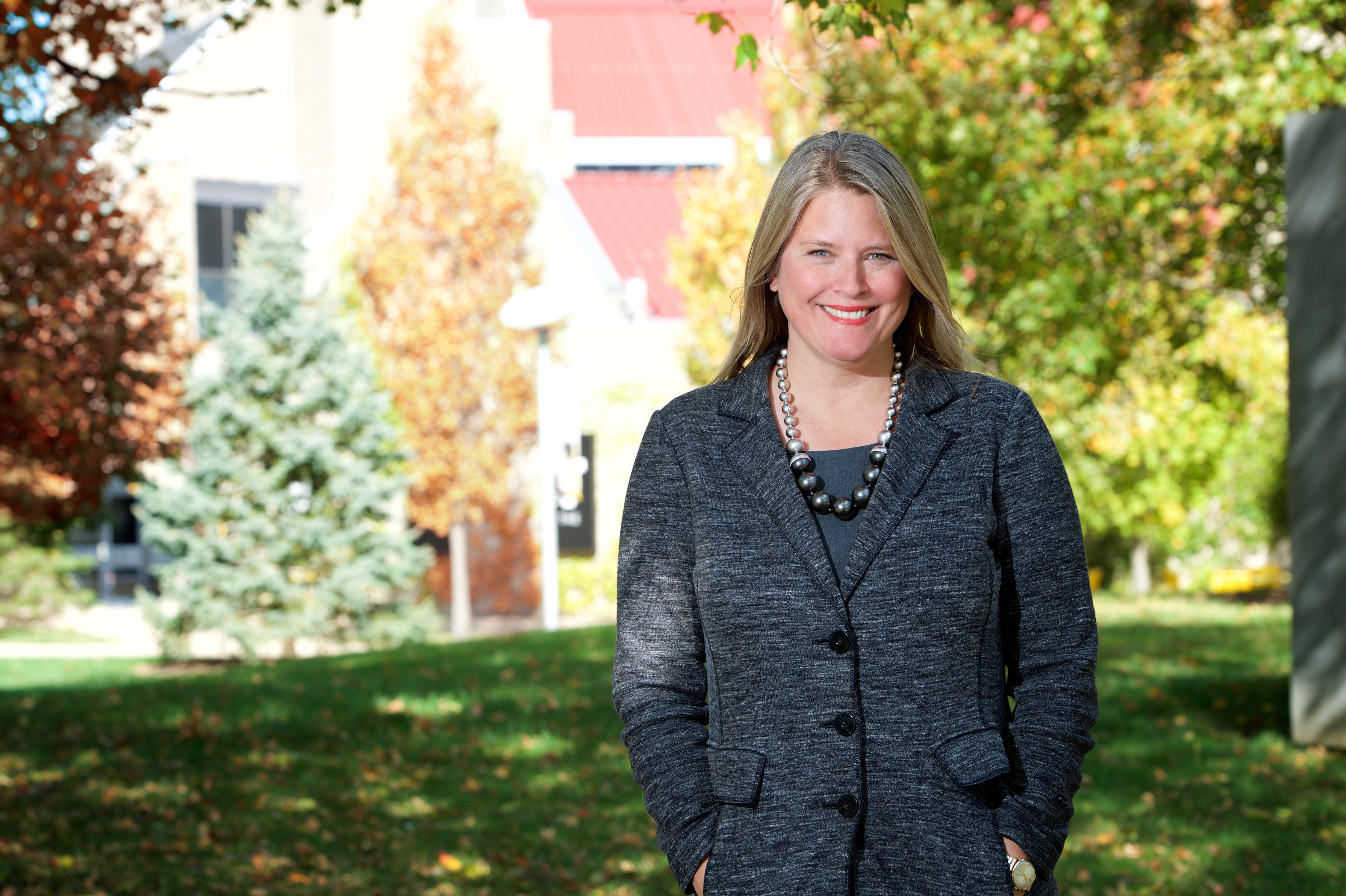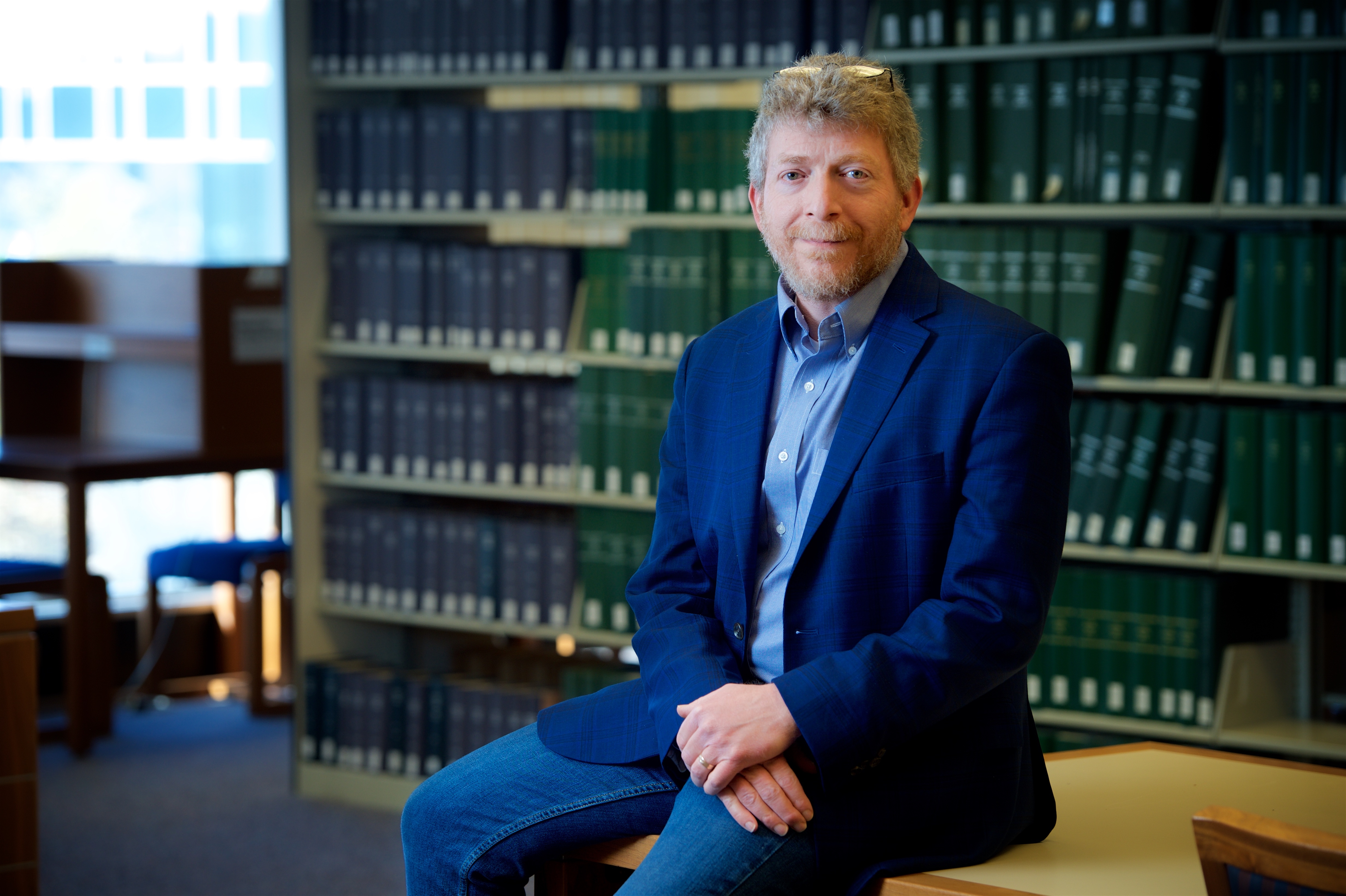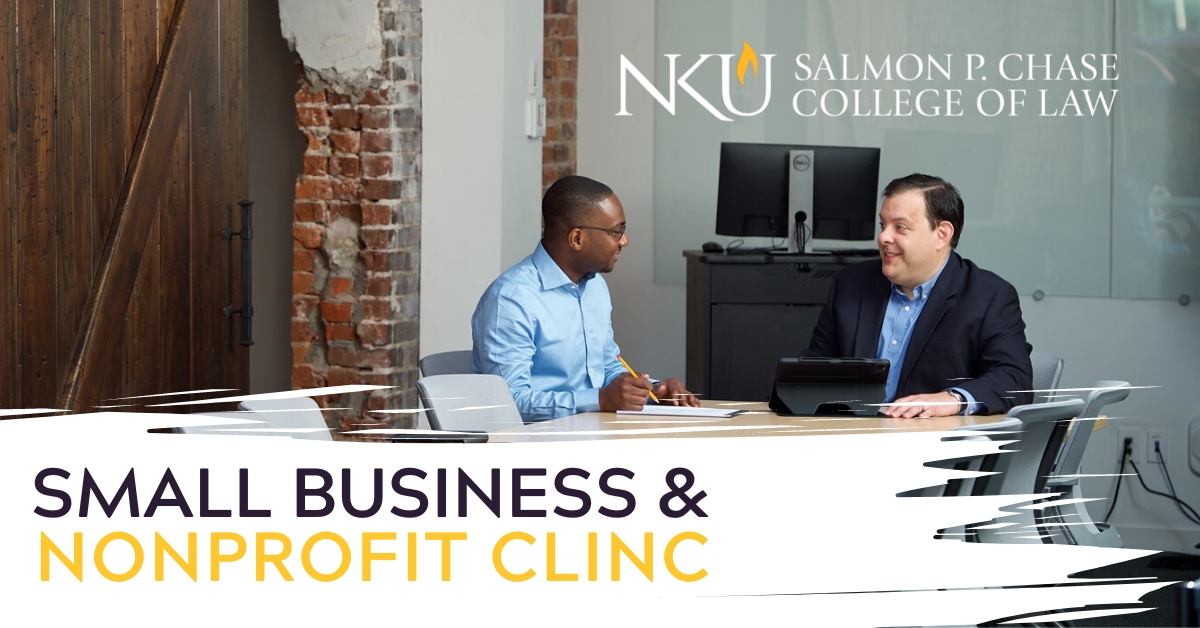Clinic students participate in preparing and presenting cases involving children and teenagers, such as education rights, delinquency, custody, and access to social services. Students can develop skills – including interviewing, investigating, negotiating, and litigating – that apply to many adversarial situations in addition to children’s law.
How to qualify
Students must have completed 28 credit hours and have completed, or be concurrently enrolled in, the Professional Responsibility course. However, upper-level students who have had courses in trial advocacy and either juvenile law or family law receive priority for clinic positions.
What to expect
The clinic is a three or four-credit-hour course that includes class time and clinic work. Students must attend a “boot camp” to prepare for clinic work, be available for some business hours each week, and complete 50 hours of clinic work for each credit hour enrolled.
The clinic faculty
Professor Jennifer Brinkman is the clinic director.
How to apply
Submit a Children's Law Center Clinic Application
How to obtain a limited law license
Participation in the clinic does not require a limited license to practice law, but one is required to appear in court with supervision of a lawyer. Students wishing to apply for a limited law license need to sign page 1 and bring it to Robin Higgins at higginsr3@nku.edu in NH 314. She will obtain all of the rest of the signatures while you complete the rest of the Kentucky Limited License Application. Contact Robin Higgins with questions.

“Students in the Children's Law Center Clinic learn to be competent, zealous advocates and creative problem solvers. They work with professionals across disciplines, including social workers, physicians, educators and other service providers to ensure the best outcomes for their clients.”
– Professor Amy Halbrook, clinic founder and director emerita.
Students assist the Kentucky Department of Public Advocacy by investigating credible claims of inmates that they were erroneously convicted of a crime they did not commit. Students interview prisoners and witnesses, examine alleged crime scenes, locate and analyze possible evidence, and prepare relevant documents. Skills students develop can apply in criminal law or civil practices.
How to qualify
Students must have completed 28 credit hours of coursework and be approved by Kentucky Innocence Project supervisors.
What to expect
The project requires a year-long commitment of 100 hours each semester, detailed monthly reports and timesheets, and a biweekly classroom and case-review element.
The project faculty
Suzanne Hopf has been a staff attorney for the Kentucky Department of Public Advocacy since 1998. She is currently the Directing Attorney for the Kentucky Innocence Project where she focuses on wrongful conviction cases. She is also active in criminal justice reform efforts and works with local and national organizations as well as the Kentucky legislature to advance best practices in the criminal justice system.
How to apply
Please submit the following to Suzanne Hopf and Prof. Mannheimer (Suzanne.hopf@ky.gov and mannheimem1@nku.edu) as soon as possible but no later than 11:59 pm on April 14, 2025:
Once the applications are received, you will conference with Ms. Hopf, probably by Zoom.

“In the Kentucky Innocence Project, students learn how to figure out the facts of a case, something they don’t get in their doctrinal courses. They read police reports and other file papers, interview the client and witnesses, and visit the crime scene. This builds important fact-investigation skills that lawyers need, no matter what type of law they practice.”
– Professor Michael Mannheimer, project coordinator
How to qualify
Students must have completed 28 credit hours and have completed, or be enrolled in, the Professional Responsibility course. Upper-level students with excellent research and writing skills will receive priority for clinic spots.
What to expect
The clinic teaches students the basics of appellate advocacy by providing an opportunity to brief actual appeals before the United States Court of Appeals for the Sixth Circuit or other appellate courts. Some students may be able to argue those appeals before the Sixth Circuit. Classes are conducted in the evening at a law firm in downtown Cincinnati. Students from the University of Cincinnati College of Law also enroll in the clinic.
The clinic faculty
The clinic is taught by experienced appellate lawyers who provide a unique perspective on appellate practice and the experience of working for clients. Faculty members include:
Colter Paulson, clinic director, whose practice represents clients in litigation involving consumer financial services, medical devices, health care, and manufacturing. As clinic director, he leads a team of attorneys and students to represent indigent prisoners in appeals.
Lauren Kuley, associate clinic director, is an experienced appellate practitioner, and leads a motions practice in complex litigation.
Nathan Colvin, associate clinic director, is an associate in a large Cincinnati law firm and a member of its litigation group. His practice is focused on complex civil litigation, including appellate, commercial, class action, and fiduciary litigation.
Scott Coyle, supervising attorney, focuses on government investigations, white-collar criminal defense, and appellate litigation. He supervises students in the clinic.
How to apply
Submit a resume, transcript, and one-page letter-of-interest to Professor Amy Halbrook, associate dean for experiential learning, by email to halbrooka1@nku.edu.
How to obtain a limited law license to appear in court
Participation in the clinic does not require a limited license to practice law, but one is required to appear in court with supervision of a lawyer. Students wishing to apply need to complete an Ohio Legal Intern License Application.
How to qualify
All students require instructor approval to register. Students must be in their third or fourth year. Full-time students in spring semester of their second year will be considered if space is available. The Business Organizations course is a pre- or co-requisite. Professional Responsibility is recommended, but not required.
What to expect
Students may enroll for two or three credit-hours a semester. Each credit-hour requires 50 hours of clinic work.
The clinic faculty
Christopher Muzzo Clinic Director has been involved with the clinic since 2018, serving as director since 2021. Professor Muzzo spent the first 25 years of his legal career in private practice, handling commercial litigation and transactional work for business clients ranging from individuals to Fortune 500 companies. In his private practice, he was most recently managing partner of the Furnier Muzzo Group, focusing on commercial litigation and business transactions. He was also founder and chief executive of LexTotus, an online consultancy that sought to help lawyers in career planning and work-life balance. He shares his decades of experience with students as they work together to find solutions for clinic clients. Professor Muzzo has assembled a team of volunteer lawyers with key specialties, including nonprofit law and Intellectual Property, to help supervise students in matters involving those areas. Professor Muzzo holds Juris Doctor and Bachelor degrees from Northwestern University.
How to apply
Register for the course during the normal semester registration period. To get instructor approval, email Professor Muzzo (muzzoc1@nku.edu) a copy of your resume, your current transcript and a short statement about why you would like to participate in the clinic. You may also email Professor Muzzo at any time with questions about the clinic or the registration process.
For potential clients
The clinic provides limited services for clients with legal needs suitable for law students and who are unable to pay private counsel. Potentional clients may complete one of the following applications:
Recent matters
Clinic students:

“The Clinic is all about having our students do actual legal work for real clients. Clinic students meet with clients, hear their stories and their needs, and craft legal solutions that help the clients to thrive. Everything we do is focused on getting our students that real-world experience.”
– Professor Christopher Muzzo, clinic director